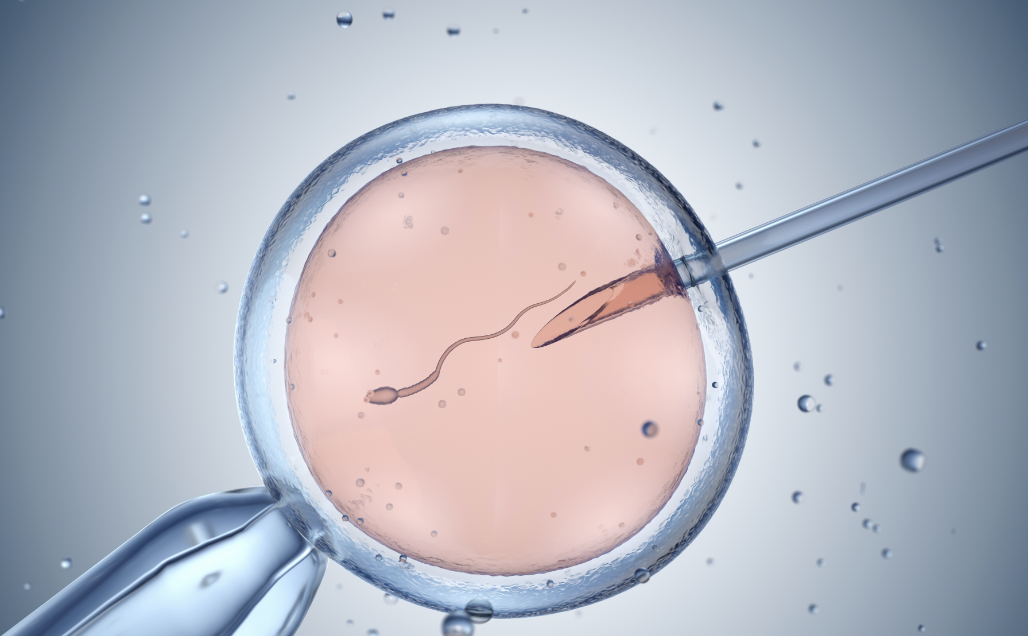What Are the Success Rates for IVF by Age?

In vitro fertilisation (IVF) is a widely used fertility treatment, yet its success varies significantly based on several factors, with age being one of the most influential. For those considering IVF, understanding how age affects outcomes, the role of lifestyle and health, and the potential benefits of donor eggs or embryo testing can provide clarity on what to expect. This guide covers IVF success rates across age groups, factors influencing these rates, and ways to improve success when age becomes a limiting factor.
IVF Success Rates Across Different Age Groups
IVF success rates tend to decline with age due to the natural decrease in egg quality and quantity. Here’s a breakdown of IVF success rates by age, based on data from the Human Fertilisation and Embryology Authority (HFEA):
- Women Under 35: This group has the highest IVF success rates, with live birth rates around 32-50% per cycle. Younger women typically produce higher-quality eggs, which improves embryo viability and implantation potential.
- Women Aged 35-37: Success rates start to decline in this age group, with an average live birth rate of 30-40% per cycle. Egg quality and ovarian reserve gradually decrease, impacting the likelihood of successful fertilisation and pregnancy.
- Women Aged 38-40: By this stage, IVF success rates decrease further, with live birth rates around 20-27% per cycle. While many women in this age range still achieve pregnancy through IVF, the decline in egg quality becomes more pronounced, and some may consider additional measures, such as embryo testing or donor eggs.
- Women Over 40: For women over 40, IVF success rates drop significantly to about 5-12% per cycle. Age-related egg quality decline makes conception more challenging, and many women in this group explore using donor eggs, which can dramatically improve success rates.
Factors That Influence IVF Success Rates
In addition to age, several other factors can impact the success of IVF:
- Health and Lifestyle: General health plays a crucial role in fertility. Maintaining a healthy lifestyle by eating a balanced diet, exercising, managing stress, and avoiding smoking or excessive alcohol can positively influence IVF outcomes. A study published in Reproductive Biology and Endocrinology found that lifestyle factors, including diet and stress management, can affect egg and sperm quality, which are critical for IVF success.
- Underlying Fertility Issues: Certain fertility conditions can affect IVF success. Endometriosis, polycystic ovary syndrome (PCOS), and male factor infertility may require tailored approaches. For instance, ICSI (intracytoplasmic sperm injection) is often recommended when male infertility is involved, improving fertilisation rates by directly injecting sperm into the egg.
- Embryo Quality: The quality of embryos used in IVF significantly impacts the likelihood of successful implantation and pregnancy. Poor embryo quality, often due to age or genetic factors, reduces success rates. Advanced reproductive technology now allows for preimplantation genetic testing, which screens embryos for genetic abnormalities, helping to improve implantation rates and reduce miscarriage risks.
- Clinic Success Rates and Experience: The success of IVF can also depend on the clinic and medical team’s experience and expertise. Consulting clinics with high success rates and experienced staff can improve chances, as protocols, lab conditions, and technological resources vary across providers.
How Success Rates Improve with Donor Eggs or Embryo Testing
When age or other factors reduce the likelihood of success, alternative approaches like using donor eggs or embryo testing can help improve outcomes.
- IVF with Donor Eggs: Donor eggs offer a solution for women who experience age-related fertility decline or have specific health conditions affecting egg quality. Using younger donor eggs can increase the chance of pregnancy to around 50% per cycle, regardless of the recipient’s age. A study in Fertility and Sterility found that success rates with donor eggs remain consistent across age groups, as egg quality is generally unaffected by the recipient’s age.
- Preimplantation Genetic Testing (PGT): PGT screens embryos for chromosomal abnormalities before implantation, helping identify the healthiest embryos for transfer. This testing is particularly beneficial for women over 35 or those with a history of miscarriage, as it reduces the likelihood of transferring embryos with genetic abnormalities. By selecting genetically healthy embryos, PGT can improve implantation rates and overall IVF success.
- Frozen Embryo Transfers (FET): Freezing embryos for future use, particularly when the first IVF cycle yields multiple viable embryos, can offer more opportunities for pregnancy. Research shows that frozen embryo transfers can be as successful as fresh transfers, and they allow flexibility for multiple attempts without requiring additional egg retrievals.
Conclusion: Navigating IVF Success Based on Age and Personal Factors
IVF success rates vary widely across age groups, and understanding these differences helps set realistic expectations. While younger women generally experience higher success rates, older women or those with specific fertility challenges can still achieve positive outcomes through methods like donor eggs, PGT, and FET. Lifestyle changes, maintaining general health, and choosing a reputable clinic can also improve the chances of success.
If you’re considering IVF, consulting with a fertility specialist can help you understand your personal success rates and discuss options for enhancing your chances. With the right information and support, IVF can be a viable pathway to building your family, regardless of age.
FAQ Section:
- Why does IVF success decline with age?
Egg quality and quantity decline with age, reducing chances of successful fertilisation and embryo development. - Can donor eggs improve IVF success rates?
Yes, using younger donor eggs can boost success rates to 50% per cycle, regardless of the recipient’s age. - Is IVF worth trying after age 40?
While success rates are lower, many women over 40 conceive with IVF, especially when using donor eggs or preimplantation genetic testing.
Further Reading
- Explore the latest IVF success rates by age on the HFEA website.
- Learn more about embryo testing options in our Guide to Preimplantation Genetic Testing.
- Discover ways to improve IVF success through lifestyle changes with our Fertility Health Guide.


 Previous
Previous

